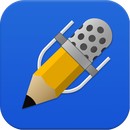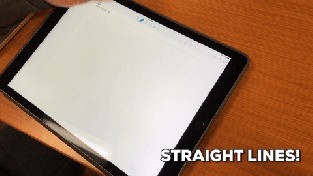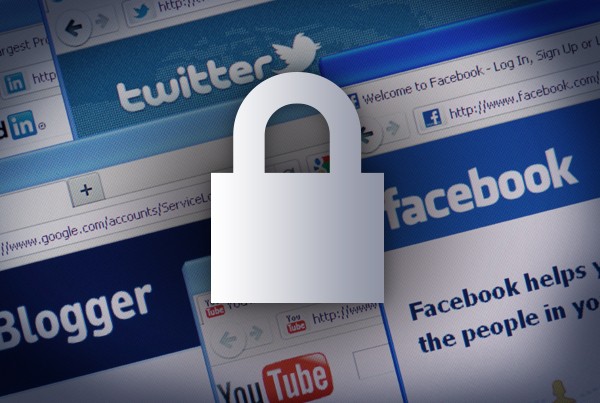--Originally published at The tech
Having any Apple product has already given you extra value and taking advantage of its capabilities is what really matters. What’s interesting here is how you use your device, how well you exploit its full potential. I’ll share with you my top 4 iPad and iPhone apps that are useful in day-to-day life.
 First and without any specific order, I’d like to talk about Documents 5 by Readdle. This app will let you sync your cloud accounts including iCloud Drive, Google Drive, Dropbox, Box, or OneDrive all in a single place. As its name states, Documents is a truly intuitive app that lets you store any type of document. This is useful for those who like order and having everything in one place with full synchronization. This app is totally free and is available for all Apple mobile devices rocking iOS 8.0 or a newer version.
First and without any specific order, I’d like to talk about Documents 5 by Readdle. This app will let you sync your cloud accounts including iCloud Drive, Google Drive, Dropbox, Box, or OneDrive all in a single place. As its name states, Documents is a truly intuitive app that lets you store any type of document. This is useful for those who like order and having everything in one place with full synchronization. This app is totally free and is available for all Apple mobile devices rocking iOS 8.0 or a newer version.
Download Documents 5
The second app that I find useful is related to note-taking. Notability is my personal favorite note-taking app that I use throughout my days as a college student. It’s an interactive app that lets you create your own notebooks and store them into folders as you  wish. It also lets you import other documents into it in order to edit them and maybe complete them with this useful tool. For those who use the Apple Pencil with their iPad Pro, the way it joins the pencil’s technology with their app ends up with a perfect result: beautiful handwritten notes (depending on your handwriting skills of course!). This app does cost but its worth the money. I made this short demo on how to create 100% straight lines for those who’d like to take advantage of this tool.
wish. It also lets you import other documents into it in order to edit them and maybe complete them with this useful tool. For those who use the Apple Pencil with their iPad Pro, the way it joins the pencil’s technology with their app ends up with a perfect result: beautiful handwritten notes (depending on your handwriting skills of course!). This app does cost but its worth the money. I made this short demo on how to create 100% straight lines for those who’d like to take advantage of this tool.
 Besides this, there are a ton of features that can be used when having Notability. There is also a Mac app for those who’d like to have all their notes and documents in their Mac.
Besides this, there are a ton of features that can be used when having Notability. There is also a Mac app for those who’d like to have all their notes and documents in their Mac.
Download Notability
Now, lets take a look at a password manager. Nowadays we have an account for almost everything involved with security or our identity online. Sometimes it’s hard to remember  each password you’ve created and what email you used for it, unless it’s the same, although I bet most of the times it won’t. 1Pasword is one
each password you’ve created and what email you used for it, unless it’s the same, although I bet most of the times it won’t. 1Pasword is one  of the most popular apps out there to manage and sync any kind of private information or passwords, such as account codes and credit card information. This app is available for free but there’s also a Pro version that includes other categories and also an Apple Watch app.
of the most popular apps out there to manage and sync any kind of private information or passwords, such as account codes and credit card information. This app is available for free but there’s also a Pro version that includes other categories and also an Apple Watch app.
Download 1Password
Lastly, this app is for online shoppers. If you are like me, when buying something online, I  like to track my stuff and have an estimated delivery date. This can be made at the courier’s site but I personally use an app called Parcel. This app wil let you add all your packages’ tracking number and it’ll do the work for you by displaying a nice menu showing you what you’ve added. It has a yearly subscription but it’s worth for constant online shoppers.
like to track my stuff and have an estimated delivery date. This can be made at the courier’s site but I personally use an app called Parcel. This app wil let you add all your packages’ tracking number and it’ll do the work for you by displaying a nice menu showing you what you’ve added. It has a yearly subscription but it’s worth for constant online shoppers.
Download Parcel
Please be sure to comment below your personal favorite and most useful apps that make your days run easier!












 First and without any specific order, I’d like to talk about Documents 5 by Readdle. This app will let you sync your cloud accounts including iCloud Drive, Google Drive, Dropbox, Box, or OneDrive all in a single place. As its name states, Documents is a truly intuitive app that lets you store any type of document. This is useful for those who like order and having everything in one place with full synchronization. This app is totally free and is available for all Apple mobile devices rocking iOS 8.0 or a newer version.
First and without any specific order, I’d like to talk about Documents 5 by Readdle. This app will let you sync your cloud accounts including iCloud Drive, Google Drive, Dropbox, Box, or OneDrive all in a single place. As its name states, Documents is a truly intuitive app that lets you store any type of document. This is useful for those who like order and having everything in one place with full synchronization. This app is totally free and is available for all Apple mobile devices rocking iOS 8.0 or a newer version. wish. It also lets you import other documents into it in order to edit them and maybe complete them with this useful tool. For those who use the Apple Pencil with their iPad Pro, the way it joins the pencil’s technology with their app ends up with a perfect result: beautiful handwritten notes (depending on your handwriting skills of course!). This app does cost but its worth the money. I made this short demo on how to create 100% straight lines for those who’d like to take advantage of this tool.
wish. It also lets you import other documents into it in order to edit them and maybe complete them with this useful tool. For those who use the Apple Pencil with their iPad Pro, the way it joins the pencil’s technology with their app ends up with a perfect result: beautiful handwritten notes (depending on your handwriting skills of course!). This app does cost but its worth the money. I made this short demo on how to create 100% straight lines for those who’d like to take advantage of this tool. Besides this, there are a ton of features that can be used when having Notability. There is also a Mac app for those who’d like to have all their notes and documents in their Mac.
Besides this, there are a ton of features that can be used when having Notability. There is also a Mac app for those who’d like to have all their notes and documents in their Mac. each password you’ve created and what email you used for it, unless it’s the same, although I bet most of the times it won’t. 1Pasword is one
each password you’ve created and what email you used for it, unless it’s the same, although I bet most of the times it won’t. 1Pasword is one  of the most popular apps out there to manage and sync any kind of private information or passwords, such as account codes and credit card information. This app is available for free but there’s also a Pro version that includes other categories and also an Apple Watch app.
of the most popular apps out there to manage and sync any kind of private information or passwords, such as account codes and credit card information. This app is available for free but there’s also a Pro version that includes other categories and also an Apple Watch app. like to track my stuff and have an estimated delivery date. This can be made at the courier’s site but I personally use an app called Parcel. This app wil let you add all your packages’ tracking number and it’ll do the work for you by displaying a nice menu showing you what you’ve added. It has a yearly subscription but it’s worth for constant online shoppers.
like to track my stuff and have an estimated delivery date. This can be made at the courier’s site but I personally use an app called Parcel. This app wil let you add all your packages’ tracking number and it’ll do the work for you by displaying a nice menu showing you what you’ve added. It has a yearly subscription but it’s worth for constant online shoppers.


